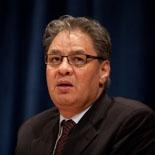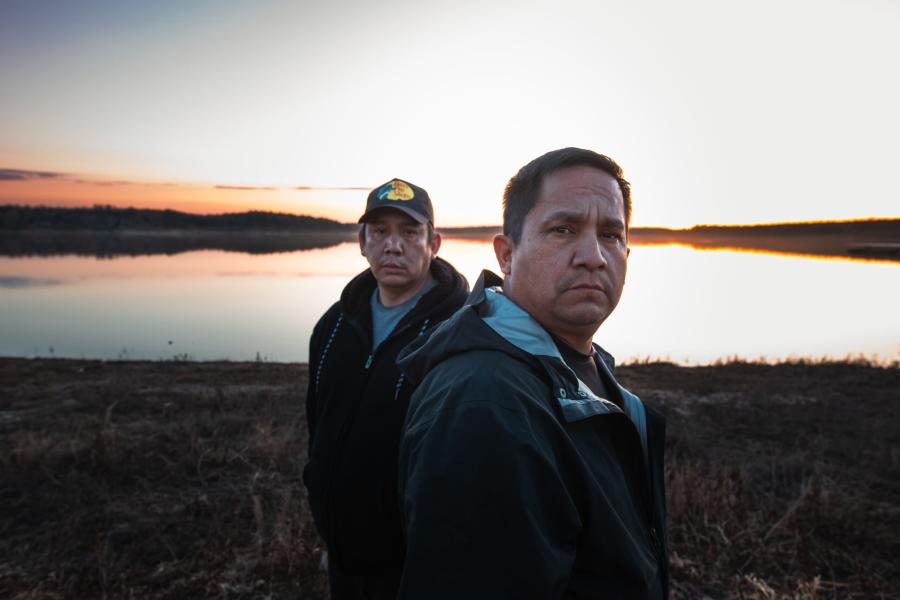
Cultural Survival congratulates Board Member, Grand Chief Edward John, on his appointment as Chairperson of the 11th Session of the United Nations Permanent Forum on Indigenous Issues (UNPFII). This year's session of the Permanent Forum is taking place at United Nations in New York from May 7-May 18. This is the first time the UNPFII has elected a chair from from North America. John will serve a three year term.
John is a Hereditary Chief of Tl’azt’en Nation in northern British Columbia, Canada. He holds a B.A. from the University of Victoria and an LL.B. from the University of British Columbia. John has served as an elected Councilor and Chief of Tl'azt'en Nation. He also served as Chief of the Carrier-Sekani Tribal Council. For his service to Tl'azt'en Nation he was awarded the title of Grand Chief of Tl'azt'en Nation. A fluent speaker of Carrier and one of the few people considered eloquent public speakers in Carrier, John was the founding President of the Yinka Dene Language Institute. He helped to create the First Nations Summit, the organization representing the British Columbia First Nations involved in treaty negotiations with Canada and British Columbia. In June, 2010 John was elected to his ninth term on the Task Group of the First Nations Summit. He is also Chief Treaty Negotiator for the Carrier Sekani Tribal Council. In January 2011, he began a three year term as the North American Representative to the United Nations Permanent Forum on Indigenous Issues.
John was quoted in Indian Country Today saying, “Taking a human rights-based approach to the development of the participation of Indigenous Peoples, creating space for Indigenous Peoples, for their effective participation in the UN processes and mechanisms is absolutely necessary when designing and implementing policy, program frameworks and projects...Free, prior and informed consent remains a fundamentally important principle...I pay a heartfelt tribute to the Indigenous people of the world who relentlessly pursue their struggles for their survival, rights, dignity wellbeing, their own self determination, development divisions and priorities. I know it’s an incredibly difficult [struggle].”
The UNPFII is the UN's central coordinating body for issues relating to the concerns and rights of Indigenous Peoples and serves as an advisory body that reports to the UN's Economic and Social Council (ECOSOC). This year's theme is "The Doctrine of Discovery: its enduring impact on Indigenous Peoples and the right to redress for past consequences," which addresses articles 28 and 37 from the UN Declaration of the Rights of Indigenous Peoples (UNDRIP). The Doctrine of Discovery was proclaimed in 1452 by the Vatican and permitted Indigenous lands to be claimed by foreign explorers. Over 2,000 Indigenous delegates from around the world are expected to participate in this year's session of the UNPFII, meeting with the expert members of the Permanent Forum, government representatives, and UN agencies.



